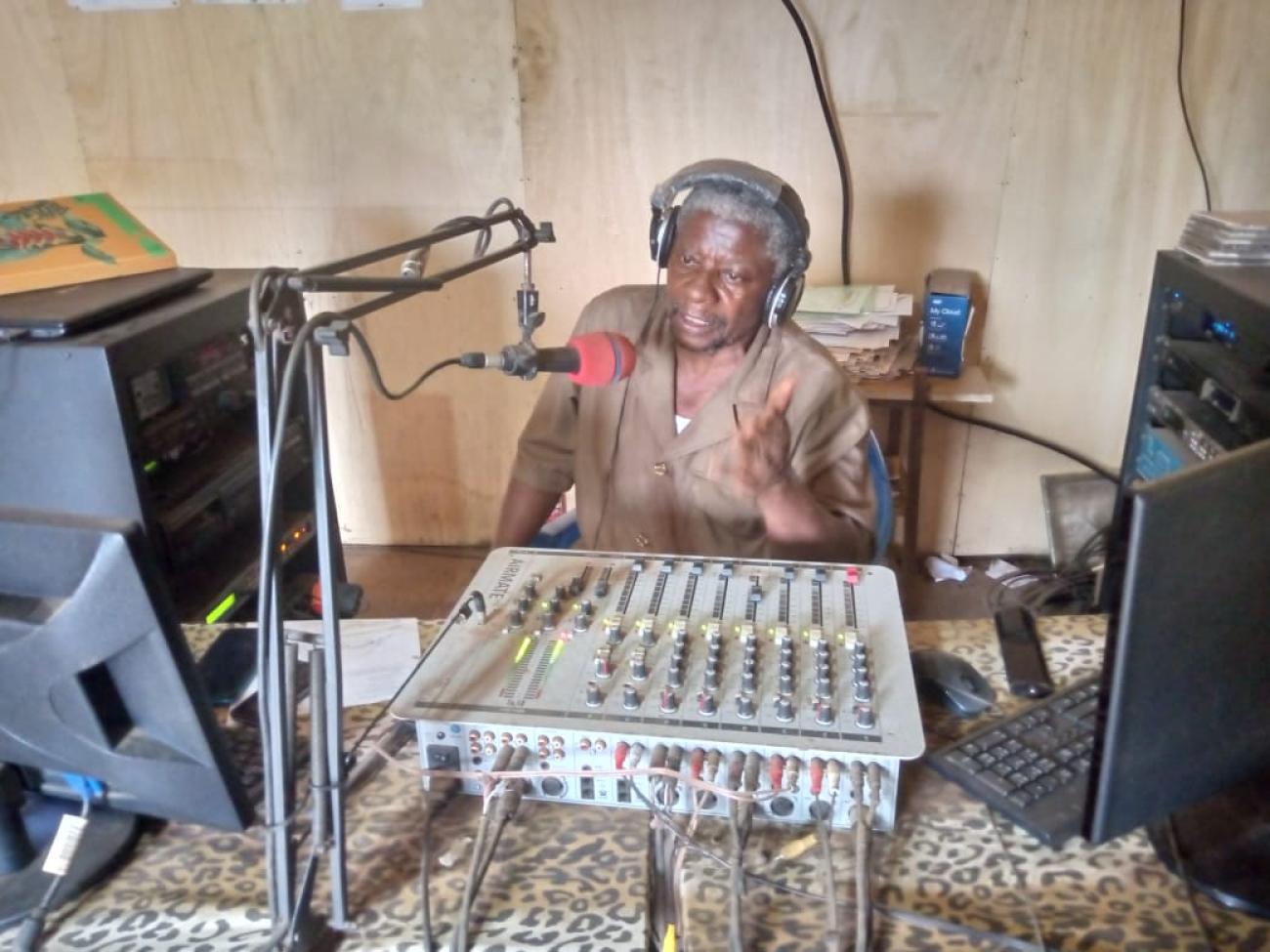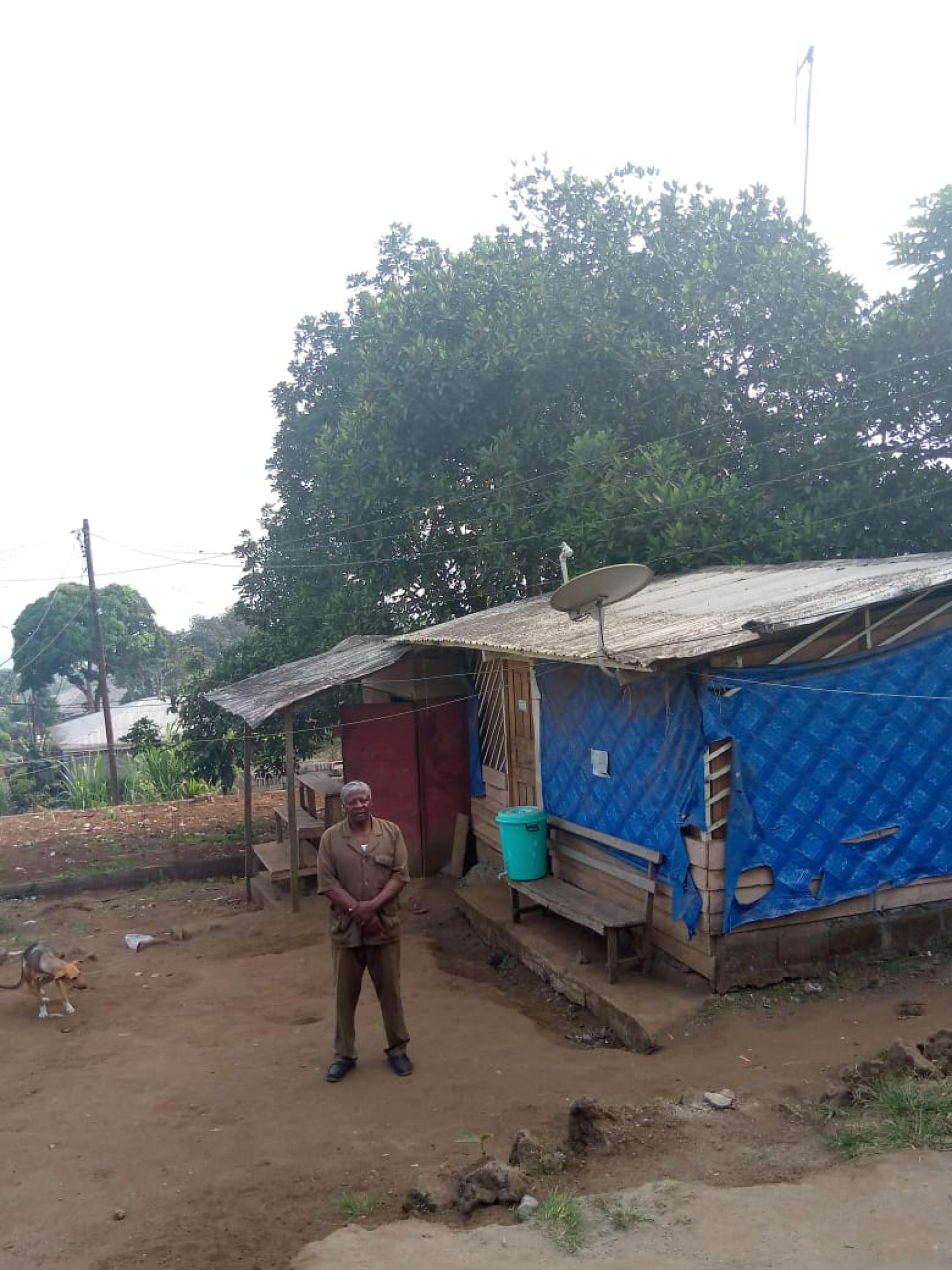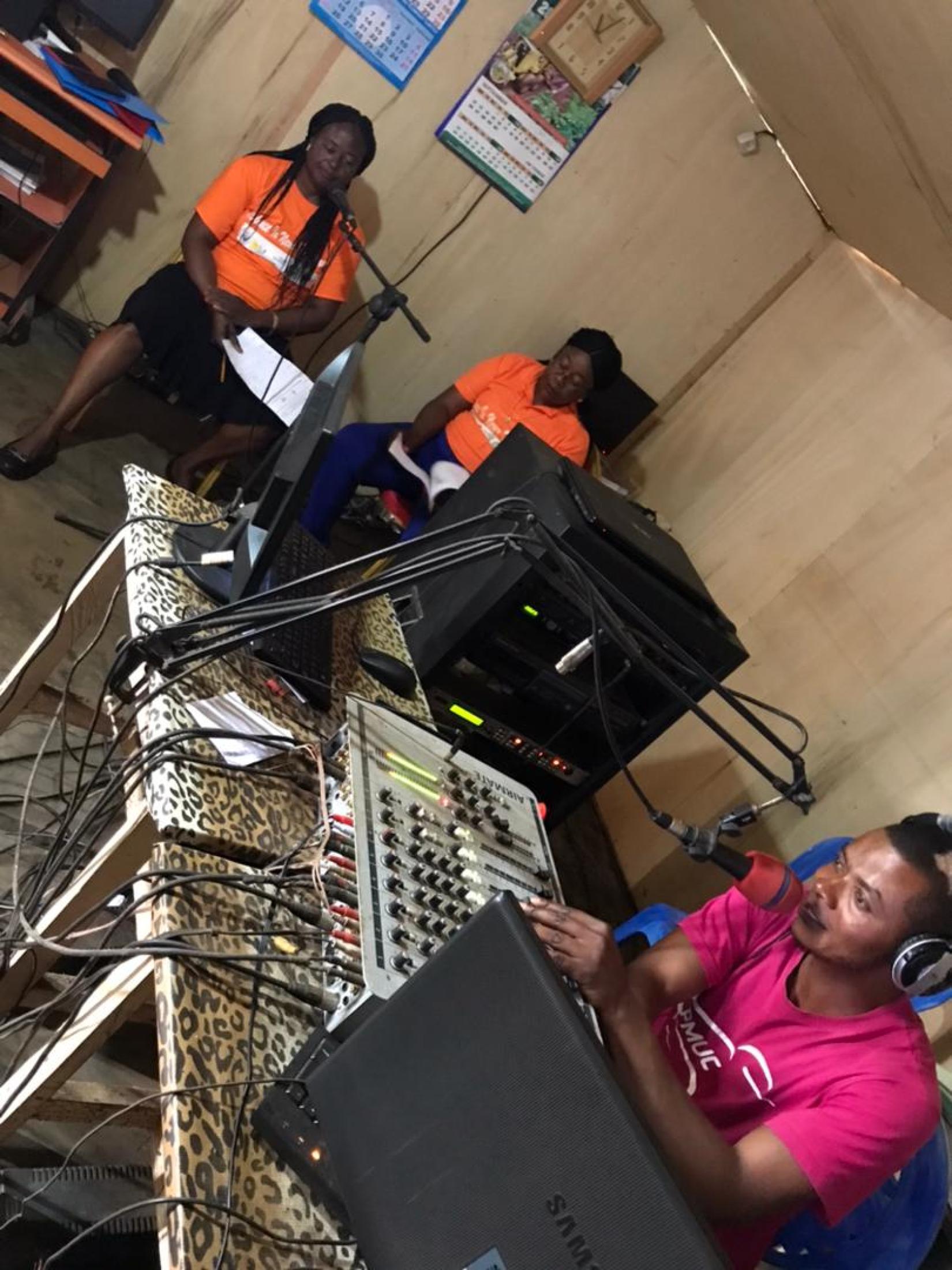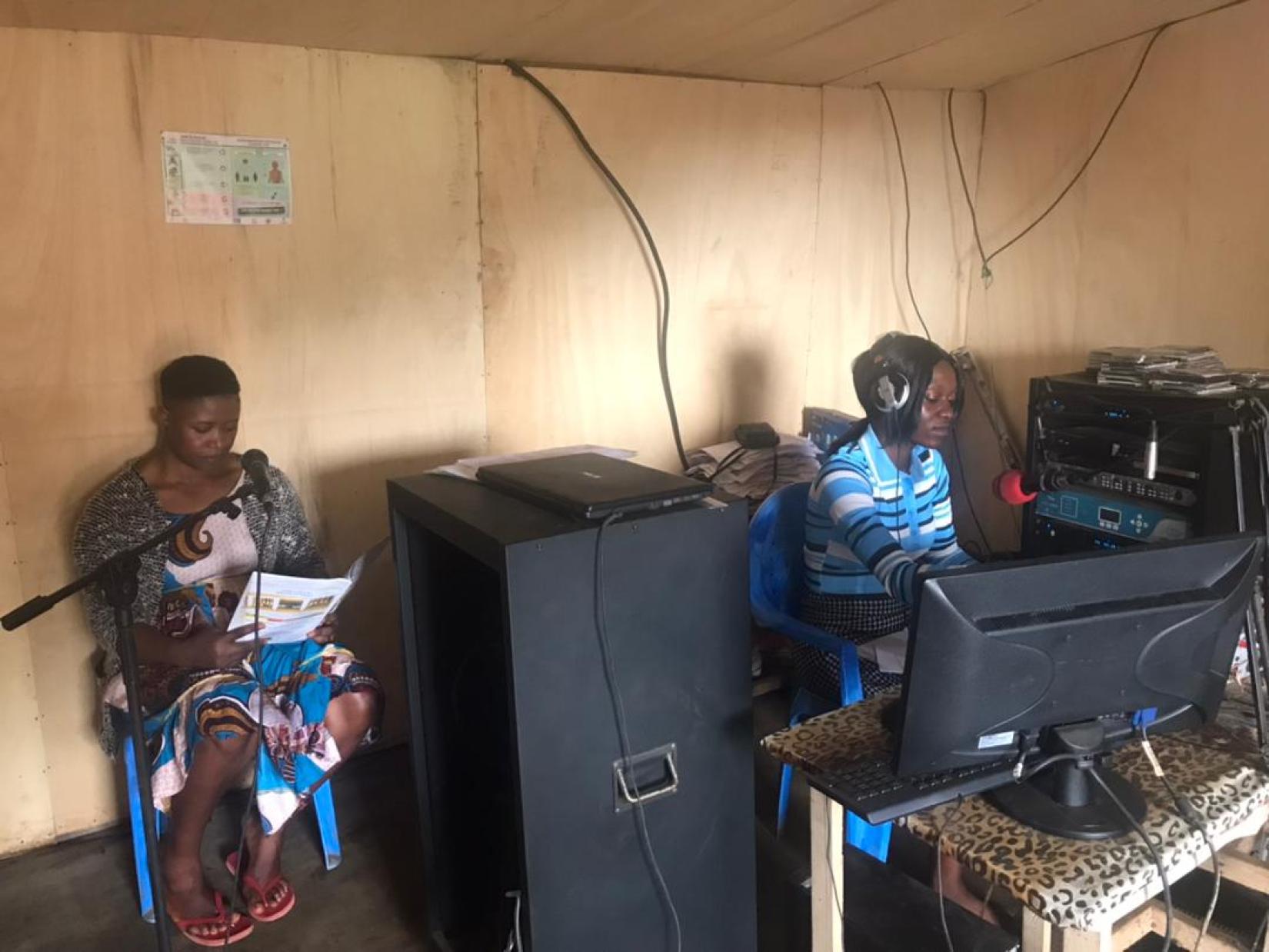Community Radios at the Frontline of Distance Learning: How Bonakanda Rural Radio is contributing to education and peacebuilding through multiple crises in the Southwest Region of Cameroon

UNESCO through the Community Radio Project and the Global Partnership for Education (GPE) bringing pylon-transmitted education to children out of school
The COVID pandemic was a massive blow to education in Cameroon as schools went into hibernation under the famous lockdowns. However, for the people of the Northwest and Southwest regions, it was a fatal blow on vulnerable people who were already going through an education crisis for nearly half a decade.
Five years ago, when the syndicate of Anglophone Cameroon teachers went on a school boycott in peaceful protest, no crystal ball could predict it will result in a full-blown armed crisis forcing over 700,000 children to stay out of school for many years. In the rural community of Bonakanda, 8 km from the city of Buea in the Southwest Region of Cameroon, Ndumbe (30) did not foresee how this situation was going to force the relocation of their radio station (Bonakanda Rural Radio) to the hills and its eventual transformation to a school providing pylon-transmitted education.
“I joined the radio for the joy of communicating with the community and initiating discussions for our community progress. Little did I know I was training to save the future of our children by radio education.” Mr Ndumbe Evambe (Station Manager, BRR) said.

The journey to Bonakanda Rural Radio (BRR) station from the city of Buea is a voiceless story in itself as you get to the end of the town’s main road, drive through a very bumpy road for 15 minutes before entering a narrow path with thick bushes on either side as you ascend a hill. Somewhere at the top of the hill, you see small house with an antenna and most probably one of the passionate radio voices of BRR coming through the plank walls.
“If we were not resilient and passionate coupled with help from UNESCO community radio project, we would have closed ever since. The crisis forced us to leave the comfort of our initial location where we had been operating for over ten years. But we were determined to contribute our own little to peacebuilding by the power of the radio.” Mr. Ndumbe said.
For over five decades, Cameroon was known to be an island of peace in Central Africa, surrounded by many nations at civil war. The Northwest and Southwest Regions were known to host the best learning institutions with a wide range of Christian Missions from colonial times which developed many great schools to provide the best education at all levels of learning to Cameroonians. The Government schools in the regions arguably provided the best academic results in the national examinations. The reputed strength and quality of educational institutions in the Northwest and Southwest Regions caused many to send their children to these regions to guarantee the best education available in the country.
When the crisis started in 2016 and kept degenerating, the devastating effects on education caused a breakdown of this academic paradise. The advent of the COVID-19 health crisis added to this situation was supposed to be a death sentence on education in these regions. However, it never materialized as UNESCO came to the rescue through its network of community radios across the national territory: a project financed by the Government to support community development for local communities by means of radio.

“Our hopes began to rise again starting from the 2019 World Radio Day when UNESCO supported our radio station among 40 other radio stations with the “Town Cryer radio” and the long lasting automated outdoor broadcasting system. It was extremely useful for the continuity of our services especially during COVID-19 sensitization programs and the security crisis period.” Mr. Ndumbe said.
“The frequent power outages also affected the radio because the motivation that was being given to the radio was frequently used to rent a generator in order to meetup with the objectives of the project. However, despite all the challenges, the support and commitment of the benevolent staff encouraged us to work more on our community programmes.” Mr. Ndumbe added.
By the time the COVID-19 situation was full-blown, UNESCO Yaounde had developed and set to roll out the distance learning platform thanks to funding from Global Partnership for Education (GPE). In the framework of this project, UNESCO initiated the “Ecole a la radio” radio school initiative which funded 40 radios in Cameroon for distance learning by radio. Bonakanda Rural Radio was one of them.
“The initiative was highly welcome by the community as a great solution and a great relief as well. Together with three teachers, we had two hours of academic lessons per day with the online learning materials provided by UNESCO. Callers from the community also appreciated the peace-building programme ‘My Beautiful Home’ which was part of the English lessons we transmitted.”
Mr. Ndumbe said.
Even though the education ban has lessened recently, with some 41 percent of schools reopened in the regions according to OCHA reports, quality learning in most schools is challenged by overcrowded classrooms, a mix of students of different levels in the same classroom, and insufficient water and sanitation facilities on school premises. Given the situation, the radio school continues to be of vital importance.

“In the city of Buea, our radio has listening clubs which function as peace ambassadors, contribute regularly to the interactions on several programmes.” Mr. Ndumbe said happily.








